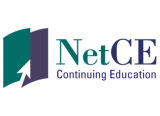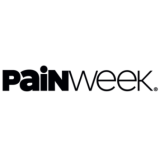New and Emerging Therapies for Agitation Associated with Dementia Due to Alzheimer’s Disease (AD) An Interactive Learning Experience

Agitation is among the most common behavioral symptoms in patients with dementia, including Alzheimer’s dementia. It exacts a significant burden on patients because it is associated with not only greater morbidity and mortality, but also a faster cognitive and functional decline.
Category
Format
- Self-study / Enduring
Credits
- 0.36 AANP Contact Hours
- 0.36 AANP Pharmacology Contact Hours
- 0.50 AMA PRA Category 1 Credit™
HIV/AIDS: Epidemic Update

Since the discovery of HIV, scientists have made major inroads in understanding modes of transmission, infectivity, and pathogenicity.
Category
Format
- Self-study / Enduring
Credits
- 5.00 MOC
- 5.00 Approved Continuing Education (ACE)
- 5.00 AMA PRA Category 1 Credit™
- 5.00 ANCC
- 5.00 Association of Social Work Boards (ASWB)
Moderate Sedation

Changes in the delivery of health care and advances in technology have moved many surgical procedures out of the traditional operating room. As such, physicians in a wide variety of settings are increasingly using moderate sedation/analgesia (often referred to as conscious sedation).
Category
Format
- Self-study / Enduring
Credits
- 5.00 AMA PRA Category 1 Credit™
Substance Use Disorders and Pain Management: MATE Act Training

Substance use disorders continue to be an important health issue in the United States and can lead to significant problems in all aspects of a person's life. Appropriate assessment and management of substance use is a priority in patient care.
Category
Format
- Self-study / Enduring
Credits
- 8.00 AMA PRA Category 1 Credit™
Sexual Harassment Prevention: The California Law

Sexual harassment in the workplace is a longstanding issue that has received renewed attention and legislation to help make the workplace safe for all.
Category
Format
- Self-study / Enduring
Credits
- 2.00 Approved Continuing Education (ACE)
- 2.00 AMA PRA Category 1 Credit™
- 2.00 Association of Social Work Boards (ASWB)
- 2.00 Contact hours
DEA MATE Opioid and Substance Use for Practitioners

This course meets the 8-hour training requirement for Drug Enforcement Administration (DEA) registered practitioners such as physicians, physician assistants, nurse practitioners, dentists, and others relevant to the Medication Access and Training Expansion (MATE) Act (Section 1263 of the Consoli
Category
Format
Credits
- 8.00 AMA PRA Category 1 Credit™
- 8.00 ANCC
MATE ACT MODULE

This activity will provide comprehensive and up-to-date information regarding the most recent and relevant laws and clinical practice guidelines regarding the safe and effective management and treatment of pain, including opioid and other substance use disorders.
Category
Format
- Self-study / Enduring
Credits
- 8.25 AANP Contact Hours
- 8.25 AAPA Category I CME
- 8.25 AMA PRA Category 1 Credit™
Child Abuse in Ethnic Minority and Immigrant Communities

Child abuse and neglect is a serious social problem. Research indicates that a significant number of children in the United States have been victims of physical abuse.
Category
Format
- Self-study / Enduring
Credits
- 10.00 AMA PRA Category 1 Credit™
- 10.00 ANCC
- 10.00 Association of Social Work Boards (ASWB)
Curbside Consults: Top Questions from PCPs on Medical Errors and Domestic Violence

What do primary care providers need to know about medical errors and domestic violence? Join expert faculty as they review important questions they get asked about these topics!
Category
Format
- Self-study / Enduring
Credits
- 1.00 AMA PRA Category 1 Credit™
What Strategies Can PCPs Use to Improve Communication About Obesity with Patients?

Engaging in patient-centered communication when discussing obesity is a crucial step toward helping your patients reach their weight-management goals.
Category
- Weight Management
Format
- Self-study / Enduring
Credits
- 0.42 AANP Contact Hours
- 0.50 AMA PRA Category 1 Credit™

 Facebook
Facebook Twitter
Twitter LinkedIn
LinkedIn Forward
Forward